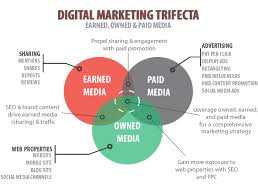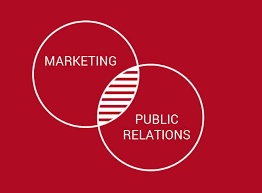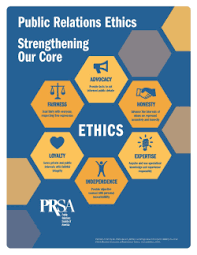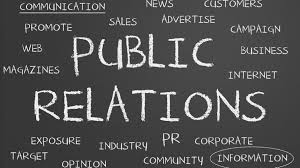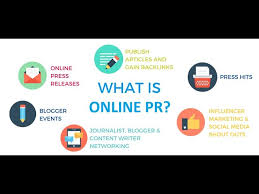Crafting a Compelling PR Profile: Building Trust and Credibility
The Importance of a Strong PR Profile
Public Relations (PR) plays a crucial role in shaping the reputation and perception of a company or individual. One key element of an effective PR strategy is having a strong PR profile.
A PR profile is essentially a representation of how an entity is perceived by the public, media, and stakeholders. It encompasses the values, messaging, and image that the entity wants to convey to its target audience.
Having a strong PR profile is essential for several reasons:
- Building Credibility: A well-crafted PR profile helps establish credibility and trust with the audience. It showcases the entity’s expertise, values, and achievements, making it more reputable in the eyes of stakeholders.
- Creating Awareness: A strong PR profile raises awareness about the entity’s products, services, or causes. It ensures that the right message reaches the right audience through strategic communication channels.
- Managing Reputation: In today’s digital age, reputation management is crucial. A robust PR profile can help mitigate negative publicity and handle crisis situations effectively to protect the entity’s image.
- Driving Engagement: A compelling PR profile engages the audience and encourages interaction. It sparks interest, initiates conversations, and fosters relationships with stakeholders for long-term success.
In conclusion, a strong PR profile is vital for enhancing visibility, credibility, and reputation in today’s competitive business landscape. By investing in developing and maintaining a robust PR profile, entities can effectively communicate their values and messages to their target audience, ultimately leading to increased trust and success.
Top 5 Benefits of a Strong PR Profile: Building Trust, Visibility, and Industry Leadership
- Enhances credibility and trust with stakeholders.
- Increases brand awareness and visibility.
- Helps in managing reputation effectively.
- Drives engagement and fosters relationships with the audience.
- Positions the entity as an industry expert or thought leader.
Challenges in Maintaining a Credible and Authentic PR Profile
- Misalignment with actual values and actions can lead to credibility issues.
- Overemphasis on image may overshadow substance and authenticity.
- Negative publicity or controversies can damage the PR profile significantly.
- Inconsistent messaging across different communication channels can confuse the audience.
- Maintaining a strong PR profile requires constant monitoring and adaptation, which can be time-consuming.
- Dependency on external PR agencies for profile management may result in lack of internal control.
Enhances credibility and trust with stakeholders.
A strong PR profile plays a crucial role in enhancing credibility and trust with stakeholders. By effectively communicating the values, expertise, and achievements of an entity, a well-crafted PR profile establishes a positive reputation that resonates with the audience. This credibility not only builds trust but also fosters long-term relationships with stakeholders, ultimately leading to increased loyalty and support for the entity’s goals and initiatives.
Increases brand awareness and visibility.
One of the key benefits of having a strong PR profile is that it significantly boosts brand awareness and visibility. Through strategic communication efforts, a well-crafted PR profile ensures that the brand’s message reaches a wider audience and resonates with stakeholders. By increasing visibility in the marketplace, businesses can attract more attention, generate interest, and ultimately strengthen their position in the industry. This heightened brand awareness not only enhances recognition but also lays the foundation for building a positive reputation and establishing credibility among consumers and key stakeholders.
Helps in managing reputation effectively.
Managing reputation effectively is a key benefit of having a strong PR profile. By proactively shaping the narrative and communicating transparently with stakeholders, companies can address any potential issues or crises before they escalate. A well-maintained PR profile allows businesses to build trust, credibility, and goodwill with their audience, enabling them to navigate challenging situations with confidence and maintain a positive reputation in the long run.
Drives engagement and fosters relationships with the audience.
One significant advantage of having a strong PR profile is its ability to drive engagement and foster relationships with the audience. By crafting compelling messaging and strategic communication tactics, a well-developed PR profile can capture the interest of the target audience, initiate meaningful conversations, and establish a connection that goes beyond mere transactions. This engagement not only enhances brand loyalty but also builds trust and rapport with stakeholders, ultimately leading to long-lasting relationships based on mutual understanding and value exchange.
Positions the entity as an industry expert or thought leader.
One significant advantage of having a strong PR profile is that it positions the entity as an industry expert or thought leader. By strategically showcasing expertise, insights, and innovative ideas through PR initiatives, the entity can establish credibility and authority within its industry. This positioning not only enhances the entity’s reputation but also attracts attention from stakeholders, media, and potential customers who seek guidance and valuable perspectives from recognised leaders in the field. As an industry expert or thought leader, the entity can influence trends, shape conversations, and drive meaningful change within its sector, ultimately setting itself apart as a trusted source of knowledge and innovation.
Misalignment with actual values and actions can lead to credibility issues.
When a PR profile is misaligned with the actual values and actions of an entity, credibility issues can arise. This disconnect between what is communicated and what is practiced can erode trust and authenticity in the eyes of stakeholders. It can lead to scepticism, confusion, and ultimately damage the reputation of the entity. Ensuring that a PR profile accurately reflects the genuine values and actions of the organisation is essential to maintain credibility and build lasting relationships with the audience.
Overemphasis on image may overshadow substance and authenticity.
An inherent con of focusing too much on a PR profile is the risk of prioritising image over substance and authenticity. When there is an overemphasis on projecting a certain image or narrative, it can lead to the neglect of genuine values and core principles. This emphasis on superficial aspects may overshadow the true essence of the entity, potentially eroding trust and credibility with stakeholders. Authenticity is key in building lasting relationships, and when it takes a backseat to image management, the PR profile may appear contrived and disconnected from reality, ultimately hindering long-term success and sustainability.
Negative publicity or controversies can damage the PR profile significantly.
Negative publicity or controversies can have a detrimental impact on a PR profile, causing significant damage to the entity’s reputation and credibility. When a company or individual is associated with adverse events or scandals, it can overshadow any positive messaging and achievements, leading to a loss of trust from stakeholders and the public. Managing and mitigating the effects of negative publicity requires swift and strategic communication efforts to address concerns, rebuild trust, and restore the integrity of the PR profile. Failure to effectively navigate such situations can result in long-lasting repercussions that tarnish the entity’s image and hinder its success in the long term.
Inconsistent messaging across different communication channels can confuse the audience.
Inconsistency in messaging across various communication channels can pose a significant challenge for a PR profile. When the audience receives conflicting information or varying narratives about a company or individual, it can lead to confusion and erode trust. Inconsistent messaging may create doubt in the minds of stakeholders, affecting the credibility and reputation of the entity. It is essential for PR professionals to maintain coherence and alignment in their communication strategies to ensure a clear and unified message that resonates with the audience effectively.
Maintaining a strong PR profile requires constant monitoring and adaptation, which can be time-consuming.
One significant drawback of maintaining a strong PR profile is the continuous need for monitoring and adaptation, which can be a time-consuming process. Keeping track of public perception, media coverage, and stakeholder feedback demands regular attention and analysis to ensure the PR profile remains relevant and effective. This ongoing effort to adjust strategies, messaging, and tactics to align with changing trends and audience preferences can be resource-intensive, requiring dedicated time and effort from PR professionals to uphold a positive and impactful profile in the long term.
Dependency on external PR agencies for profile management may result in lack of internal control.
One significant drawback of relying heavily on external PR agencies for profile management is the potential loss of internal control. When an entity entrusts its PR profile entirely to external agencies, there is a risk of disconnect between the entity’s core values and messaging and the way they are portrayed externally. This dependency may lead to a lack of direct oversight and involvement in shaping the PR strategy, resulting in a loss of control over the entity’s reputation and communication channels. Without a strong internal understanding and management of the PR profile, there is a possibility of misalignment with the entity’s objectives and values, ultimately impacting its credibility and relationship with stakeholders.




